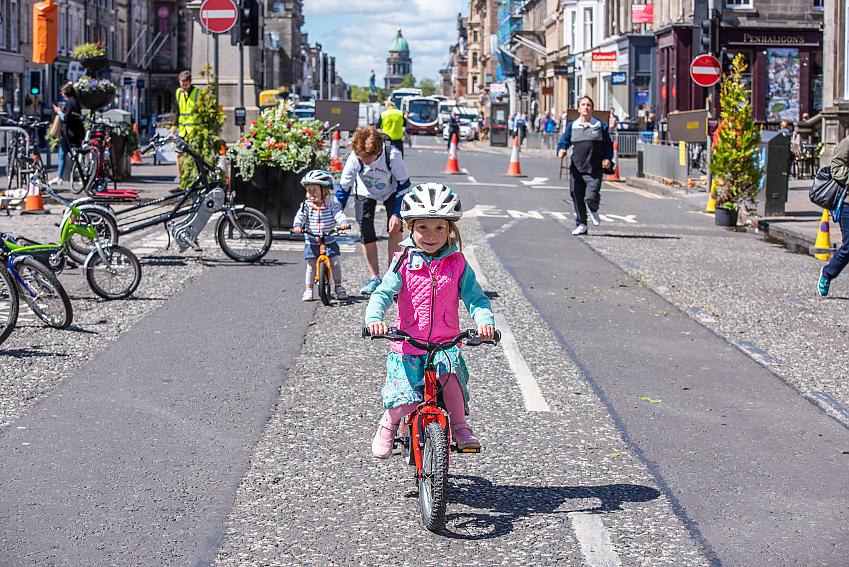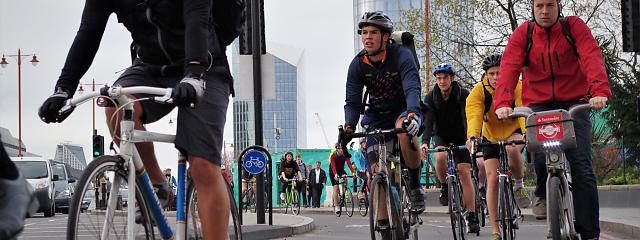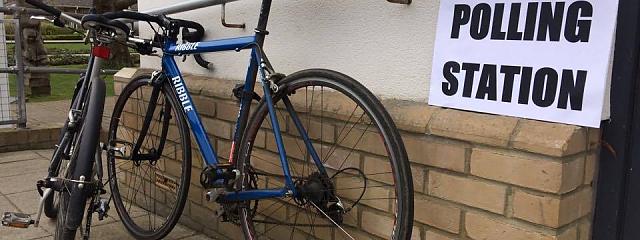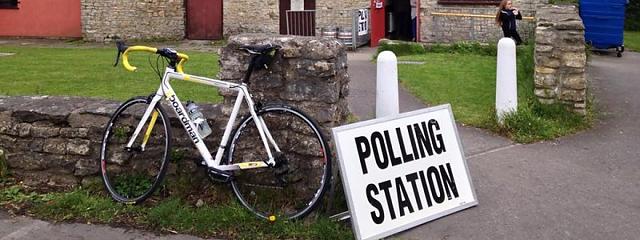
Election 2019: Invest in cycling and walking to help save the planet
Election 2019: Invest in cycling and walking to help save the planet
Sometimes I feel like I’m drowning in statistics. So much so, that occasionally it becomes difficult to see the wood for the trees.
I suspect many people have felt that way about climate change, and crucially, the measures needed to tackle this. It’s a topic that’s been discussed and debated for years, but I can’t remember this being a real election issue previously.
No magic bullet
Of course, a quick online search on ways to tackle climate change will immediately reveal that there isn’t a magic bullet, the one thing that fixes the problem. Rather there’s a range of things which individuals, manufacturers, businesses, and governments both local and national can do as part of the solution.
But I’m a transport campaigner wearing a cycling and walking hat, so my focus is on how active travel can help address this crisis.
Miracle pill
Whilst people cycling and walking more is fantastic in and of itself, with huge physical and mental health benefits which suggest this miracle pill should be available on prescription, there are also far wider societal and environmental benefits.
Too often politicians don’t seem to join up the dots and realise for example that investing in active travel makes money and makes sense, or that one of the simplest, quickest and cheapest ways to deal with our air pollution crisis is to invest to enable more active travel.
But what about climate change: surely in the wake of Extinction Rebellion protests the politicians get it now, and realise that moving beyond car dependency, particularly for short journeys, is one of the ways to reduce our greenhouse gas (GHG) emissions?
I’m not convinced enough truly do. Briefings like our own on the need for action to tackle transport’s contribution to climate change present the data, but we’ve not yet cut through with a Blue Planet 2 moment, enabling the public and politicians to cut through the science and accept that something needed to be done about plastics in the oceans.
Crisis, what crisis?
Cycling UK is currently asking all of the candidates standing to be MPs to pledge to support increased investment in cycling and walking to at least 5% of transport spending next year, increasing to at least 10% within five years. We’re pressing them to do this because we’re facing climate, pollution, congestion and inactivity-related public health crises, and underpinning all of these is an underfunding of active travel. But how do we move transport emissions and the climate consequences up the agenda?
Searching for an answer, I commissioned consultants Witteveen Bos look into the potential impact of shifting car journeys under five miles to journeys by bike or on foot. So, let’s start with some basic facts, and keep it really simple:
- In 2018, UK net emissions of carbon dioxide were estimated to be 346.1 million tonnes (Mt).
- 121.4 Mt were attributable to transport.
- Cars alone account for 15% of total UK GHG emissions.
- 57% of those journeys in England (similar trends in Scotland) are less than 5 miles.
What we need to remember of course is that our climate crisis can’t be fixed by one sector. There’s no magic cure, and the solution will be a sum of its parts. Shifting car journeys under five miles to active travel would have a real impact.
Those journeys contribute 4.7 Mt of CO2 emissions annually in the UK, and anyone who doesn’t think that’s significant should ask themselves how they would achieve that reduction as quickly, for the same cost, and with so many wider public health, environmental and economic benefits?
So many benefits
Ok, the statistics on journeys under five miles aren’t new, and neither are the calculations about emissions, but that doesn’t mean they’re not worth repeating, because the story that transport emissions matter, and that the answer’s more active travel, hasn’t cut through enough.
Perhaps that’s because there are so many benefits from investing in cycling and walking, that it’s difficult to continually focus on one thing. But that’s also one of the magic things about active travel: it benefits everyone if you or I choose to walk or cycle rather than drive a mile to the shops.
Did you know?
I spend too much of my time looking at statistics, and there’s a danger that they start to blur! Every now and again however, a fact you’ve never heard before jumps out. You find yourself saying “I never knew that”.
That’s what happened when I asked Witteveen Bos to look at CO2 emissions, and they also came back to me about microplastics and vehicle tyre dust. Did you know that tyre dust is the largest source of microplastics in the world’s ocean?
Neither did I. I knew that more people undertaking short journeys either cycling or walking was better for air quality and is essential if we’re serious about tackling climate change, but I’d missed the relevance to plastics in our oceans. If I’ve overlooked this, the chances are that many of the people hoping to become your MP on Thursday have done the same, just as many of them won’t have grasped the wider benefits of active travel.
Make your voice heard
I realise you might not be able to convince them in a short email, but what you can do is show them how important proper funding for cycling and walking is to you. I once heard Chris Boardman say that politicians tend to ignore one email on a subject, but when they get ten on the same topic, they start to take notice, because they realise it matters to voters.
It’s easy for MPs to ignore one email, but harder to keep on doing so when they see how much this matters to voters in their constituency.
Duncan Dollimore
Over 4000 people have emailed their candidates using our online action, asking them to stand up for cycling and walking, and to support increased investment in active travel to at least 5% of transport spending next year, increasing to at least 10% within five years. And over 600 candidates have made the pledge, but that’s not enough.
Please make your voice heard, and use our online tool to check which of your candidates have made the pledge. If they haven’t, you can email them, editing the standard email if you have time to refer to local issues or your own concerns, or their party’s position on funding for active travel, which I’ve summarised here.
Two days left
It’s easy for them to ignore one email, but harder to keep on doing so when they see how much this matters to voters in their constituency.
We’ve got two days left to get candidates to pledge to stand up for cycling and walking, so please use our online action to ask those who haven’t stood up yet why not!
Let’s make sure your future MP knows how much funding for cycling and walking matters, not just for those who want to travel actively, but for everyone, and our environment.













